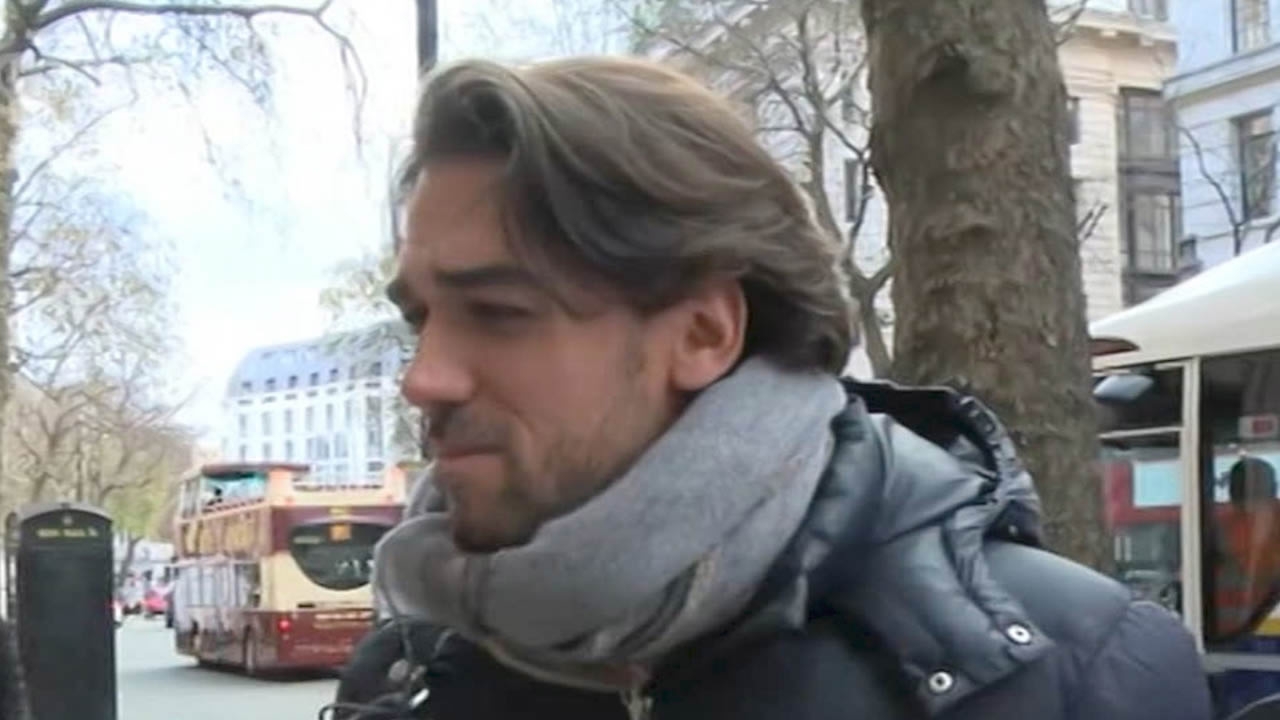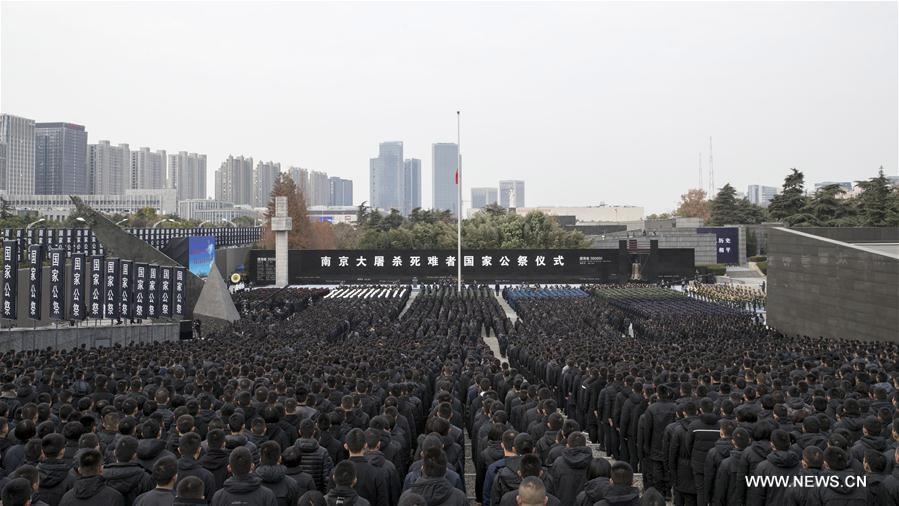
Politics
14:58, 13-Dec-2017
How people around the world perceive Nanjing Massacre
By Li Siying, Xu Liyao

People around the world are taking time to learn more about the 1937 Nanjing Massacre. While the Auschwitz Concentration Camp, for example, has become a global symbol of nightmare, Nanjing Massacre, which happened around the same time, is still foreign to many outside of Asia.
"I know about Auschwitz, because we studied it in school," a South African resident told CGTN. "It happened around the same time. But I haven't heard about the Nanjing Massacre, so it's really surprising to find out now that so many people were murdered."
An Israeli resident told CGTN he came across Nanjing Massacre while studying in the United States. But he wasn’t sure if it happened in Manchuria or other regions of China. “It was just a lot of atrocities,” he said.
One Australian saw it as an “appalling” atrocity. “Australia was involved because Robert Menzies (ex-PM) sold pit guns to the Japanese," the commenter said. "The union boycotted the ship that transported pit guns to the Japanese in protest against those massacres.”
“Japanese killed a lot of people when Nanjing was the capital of China," Yoo Ji-sun from South Korea said about her knowledge of the atrocities. "They also raped a lot of women.”
“I mean, if I'm not wrong, half of the population was wiped out during that period,” a Singaporean said.
Japan invaded northeast China in September 1931, and started a full-scale invasion of China on July 7, 1937.

A state memorial ceremony for China's National Memorial Day for the Nanjing Massacre Victims was held at the memorial hall for the massacre victims in Nanjing, east China's Jiangsu Province. /Xinhua Photo
A state memorial ceremony for China's National Memorial Day for the Nanjing Massacre Victims was held at the memorial hall for the massacre victims in Nanjing, east China's Jiangsu Province. /Xinhua Photo
Japanese troops captured Nanjing, then China's capital, on Dec. 13, 1937 and started a 40-odd-day slaughter. About 300,000 civilians and unarmed Chinese soldiers were brutally murdered. Over 20,000 women were raped.
But still, this part of history was new to many people interviewed by CGTN.
“No, unfortunately no... I'm so sorry that I don't even know that I haven't heard of it,” an American resident said.
“Vaguely I have heard of it. But I don't know the details of it,” another American interviewee told CGTN. She said she knows about Auschwitz, and she knows that in Germany they talk a lot about Auschwitz.
Her companion also knew about the Auschwitz concentration camp well. “It’s in the culture here, on television, and museums. What happened in China isn't well popularized here.”
For South Korean Bang So-jeong, it’s more than about just knowing about the massacre itself.
“I think those countries that have experienced things like this in their history, like massacres and atrocities; we need to find out the truth.”
A memorial service was held on Wednesday in Nanjing to mark the 80th anniversary of the start of Nanjing massacre.
This year also marks the 4th anniversary of the Chinese government declaring December 13 as National Memorial Day for Nanjing Massacre Victims.

SITEMAP
Copyright © 2018 CGTN. Beijing ICP prepared NO.16065310-3
Copyright © 2018 CGTN. Beijing ICP prepared NO.16065310-3